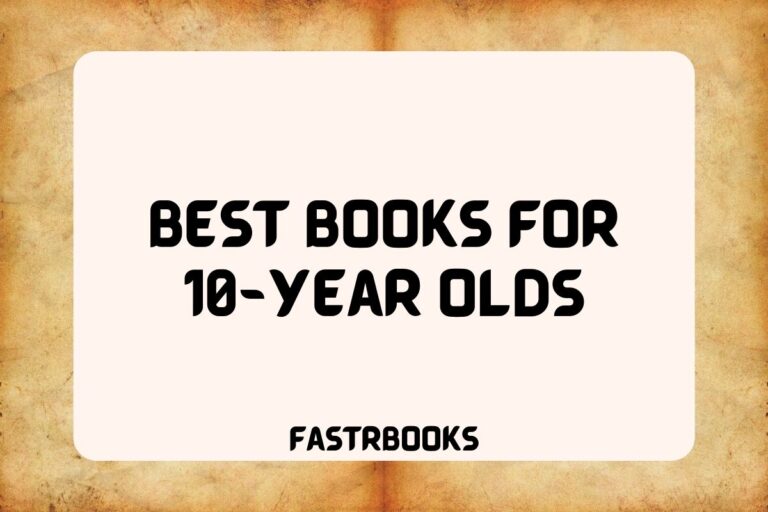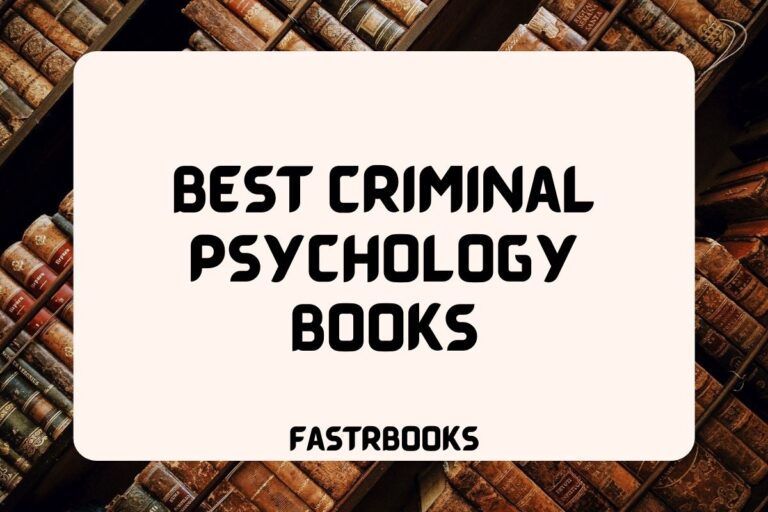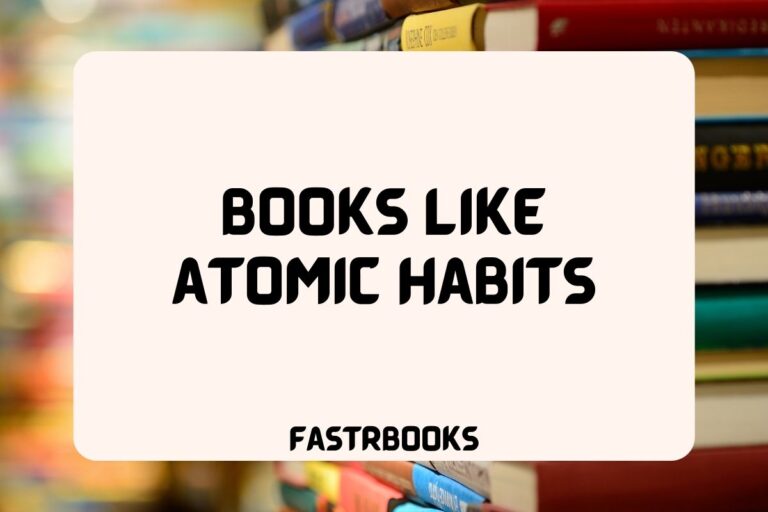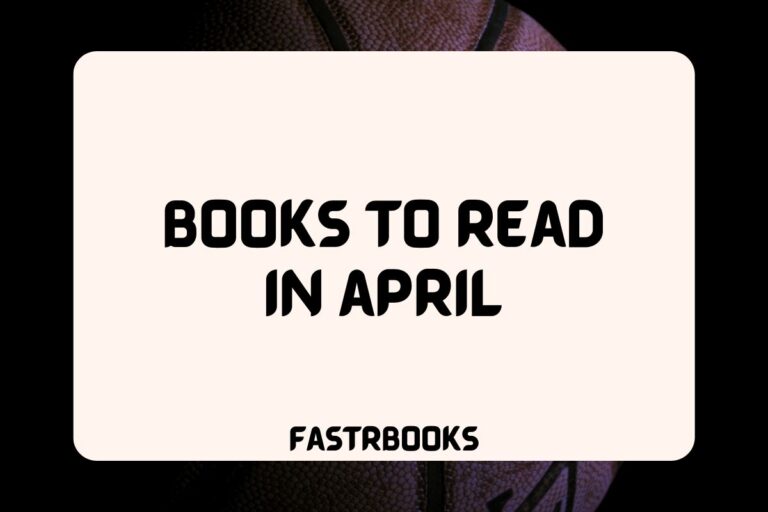55 Best Self-Help Books
Self-help books are a valuable resource for personal growth and development. They offer insights, guidance, and practical advice to help individuals overcome challenges, improve their mindset, and achieve their goals.
With countless self-help books available, it can be overwhelming to choose the right ones for your needs.
In this blog post, I have compiled a list of some of the best self-help books across various categories, ensuring that there’s something for everyone.
Whether you’re looking to boost your self-esteem, find happiness, enhance your productivity, or build better relationships, these books have got you covered.
Best Self-Help Books
“The 7 Habits of Highly Effective People” by Stephen R. Covey
This book offers a principle-centered approach for solving personal and professional problems. Covey presents a holistic, integrated, principle-centered approach for living a more effective and fulfilled life.
The seven habits include being proactive, beginning with the end in mind, putting first things first, thinking win-win, seeking first to understand then to be understood, synergizing, and sharpening the saw.
“How to Win Friends and Influence People” by Dale Carnegie
A timeless classic, Carnegie’s book is a guide to navigating relationships and human interactions.
It emphasizes principles like being genuinely interested in other people, remembering their names, being a good listener, talking in terms of the other person’s interests, and making the other person feel important.
“Think and Grow Rich” by Napoleon Hill
Based on Hill’s study of over forty millionaires, this book distills the principles of success.
It covers topics like desire, faith, autosuggestion, specialized knowledge, imagination, organized planning, decision, persistence, the power of the mastermind, the mystery of sex transmutation, the subconscious mind, the brain, and the sixth sense.
“The Power of Now” by Eckhart Tolle
Tolle introduces readers to the concept of being fully present in the current moment as a source of joy and fulfillment.
The book addresses the importance of dissociating from one’s ego to achieve peace and enlightenment, emphasizing the significance of present-moment awareness.
“Awaken the Giant Within” by Tony Robbins
This book is a comprehensive guide to taking control of your emotional, physical, and financial destiny.
Robbins offers strategies and techniques for mastering your emotions, your body, your relationships, your finances, and your life, emphasizing the power of decision-making.
“The Four Agreements” by Don Miguel Ruiz
Based on ancient Toltec wisdom, the book suggests four agreements for personal freedom: Be impeccable with your word, don’t take anything personally, don’t make assumptions, and always do your best.
These principles aim to create a life of freedom, true happiness, and love.
“The Alchemist” by Paulo Coelho
Although more of a novel than a traditional self-help book, “The Alchemist” is a metaphorical tale about following one’s dreams and understanding the essential wisdom of listening to our hearts. The story follows a young shepherd named Santiago on his journey to discover his personal legend.
“The Subtle Art of Not Giving a F*ck” by Mark Manson
In this counterintuitive approach to living a good life, Manson uses his own experiences to illustrate that improving our lives hinges not on our ability to turn lemons into lemonade, but on learning to stomach lemons better.
The book emphasizes the importance of embracing negative experiences and understanding that the struggles in life are what give it meaning.
“Atomic Habits” by James Clear
James Clear focuses on how small changes and habits can lead to remarkable results.
He explains how habits are formed and broken, providing practical strategies for forming good habits, breaking bad ones, and mastering the tiny behaviors that lead to remarkable results. The book emphasizes the compound effect of habits over time.
“Man’s Search for Meaning” by Viktor E. Frankl
A memoir and psychological exploration, Frankl’s book is based on his experiences as a Holocaust survivor.
Frankl discusses his theory of logotherapy, which posits that the primary drive in human beings is not pleasure, as Freud maintained, but the pursuit of what we find meaningful.
He argues that even in the most painful and dehumanizing situations, life has potential meaning and therefore even suffering can be meaningful.
“Mindset: The New Psychology of Success” by Carol S. Dweck
Carol Dweck explores the power of our mindset in determining success. She delineates between two mindsets: the fixed mindset and the growth mindset.
According to Dweck, these mindsets can have a significant impact on aspects of personal development, including education, business, and relationships.
“Rich Dad Poor Dad” by Robert T. Kiyosaki
This book advocates the importance of financial literacy, financial independence, and building wealth through investing, real estate, owning businesses, and the use of finance protection tactics.
Kiyosaki uses his own upbringing as an example to illustrate how each individual can choose to be rich by learning about money and making smart decisions.
“The Secret” by Rhonda Byrne
Based on the belief in the law of attraction, “The Secret” posits that thoughts can change a person’s life directly. Byrne argues that positive thinking can create life-changing results such as increased wealth, health, and happiness.
“Daring Greatly” by Brené Brown
This book examines the importance of vulnerability in creating a courageous, engaged, and purposeful life.
Brown argues that vulnerability is not a sign of weakness but a source of strength and clarity. She discusses concepts like shame, worthiness, and the power of embracing imperfections.
“Getting Things Done: The Art of Stress-Free Productivity” by David Allen
David Allen introduces a productivity method that helps manage tasks more efficiently to relieve stress.
His technique is about organizing tasks into actionable work items, categorizing them, and dealing with them in a systematic way.
“The 5 Love Languages” by Gary Chapman
Chapman’s book outlines five ways to express and experience love that he calls “love languages”: receiving gifts, quality time, words of affirmation, acts of service (devotion), and physical touch.
Understanding these can help in fostering successful relationships.
“The Life-Changing Magic of Tidying Up” by Marie Kondo
This book introduces the KonMari method, a category-by-category system of simplifying and organizing your home by getting rid of physical items that do not bring joy into your life.
Kondo encourages a minimalist approach to possessions, advocating for a profound reevaluation of what items are truly important.
“The Road Less Traveled” by M. Scott Peck
Peck explores the nature of loving relationships and leads readers toward a new serenity and fullness of life.
He discusses the concepts of discipline, love, religion, and grace, suggesting that life is difficult but this is a truth that, once accepted, can lead to a life of growth and fulfillment.
“You Are a Badass” by Jen Sincero
This book is a refreshing, blunt, and humorous guide to understanding your potential and living an awesome life.
Sincero provides personal anecdotes and advice to help readers overcome their self-limiting beliefs and start living a life they love. It’s a rallying cry to embrace your inner badass and live your best life.
“Lean In: Women, Work, and the Will to Lead” by Sheryl Sandberg
Sandberg, the COO of Facebook, offers a compelling look at the challenges women face in the workplace.
She combines personal anecdotes with hard data to discuss gender issues in professional environments and encourages women to “lean in” to their ambitions, pursue their goals assertively, and not hold back due to societal expectations.
“The Happiness Project” by Gretchen Rubin
In this book, Rubin recounts her year-long journey to discover what leads to true contentment.
She tests various theories and advice about happiness, from ancient philosophy to contemporary pop psychology. The book is a blend of a memoir, a self-help guide, and a social experiment.
“Drive: The Surprising Truth About What Motivates Us” by Daniel H. Pink
Pink examines the three elements of true motivation: autonomy, mastery, and purpose.
He argues that the traditional rewards-based motivation system is outdated and proposes a new approach that focuses on intrinsic motivation. The book is a thought-provoking analysis of what drives human behavior and how to harness that knowledge.
“Who Moved My Cheese?” by Spencer Johnson
A parable featuring mice and “littlepeople”, this book is a simple yet profound tale that explores how to deal with change in work and life. It’s a story about adjusting to change quickly and efficiently, with characters who represent different responses to change.
“The Gifts of Imperfection” by Brené Brown
Brown encourages readers to embrace their imperfections and recognize that they are enough just as they are. She combines research with personal stories to discuss how to cultivate courage, compassion, and connection to embrace your authentic self.
“Start with Why: How Great Leaders Inspire Everyone to Take Action” by Simon Sinek
Sinek explores how leaders can inspire cooperation, trust, and change in a business environment. He introduces the concept of the “Golden Circle” and the question “Why?”, arguing that knowing why your company or cause exists and why it’s important can be a powerful motivator and differentiator.
“The Monk Who Sold His Ferrari” by Robin Sharma
This fable tells the story of Julian Mantle, a successful lawyer forced to confront the spiritual crisis of his out-of-balance life. Through a remarkable transformation, Mantle shares the wisdom he learns from Himalayan gurus about living with greater passion, purpose, and peace.
“The Art of Happiness” by Dalai Lama
Co-authored with psychiatrist Howard Cutler, this book blends the Dalai Lama’s eastern spiritual tradition with Western perspectives to provide a comprehensive approach to happiness.
It covers topics like the importance of compassion and kindness, and the intrinsic nature of happiness.
“The Power of Positive Thinking” by Norman Vincent Peale
This book is a guide to optimistic living through faith in oneself and a higher power.
Peale offers practical instructions and anecdotes to guide readers in overcoming defeatist attitudes, among other obstacles in life. It emphasizes the mental and emotional benefits of a positive outlook.
“Feeling Good: The New Mood Therapy” by David D. Burns
This book delves into cognitive behavioral therapy (CBT), a clinically proven drug-free treatment for depression.
Burns outlines techniques and concepts that help readers change negative patterns of thinking that lead to feelings of low self-esteem and depression. The book is widely acclaimed for its practical and effective strategies.
“Eat That Frog!: 21 Great Ways to Stop Procrastinating and Get More Done in Less Time” by Brian Tracy
Based on the idea that if you eat a live frog first thing in the morning, nothing worse can happen for the rest of the day, Tracy uses this metaphor to tackle procrastination.
The book presents 21 practical and doable steps to stop procrastinating and get more of the important tasks done efficiently.
“Grit: The Power of Passion and Perseverance” by Angela Duckworth
Angela Duckworth presents her research on “grit” as a key predictor of success. This book argues that talent is not as important as a persistent and passionate effort.
Duckworth shares stories from various walks of life, illustrating how perseverance and passion can outweigh pure talent.
“The Power of Habit: Why We Do What We Do in Life and Business” by Charles Duhigg
Duhigg explores the science behind why habits exist and how they can be changed. Through a combination of academic research and real-life examples, the book discusses how habits work and how they can be transformed to create positive change in individuals, communities, and organizations.
“Good to Great: Why Some Companies Make the Leap and Others Don’t” by Jim Collins
Collins and his team of researchers delve into what separates great companies from good ones.
The book outlines principles such as “Level 5 Leadership”, the concept of a “Hedgehog”, and the culture of discipline, providing insights into how organizations can achieve long-term, sustained excellence.
“Outliers: The Story of Success” by Malcolm Gladwell
Gladwell examines the factors that contribute to high levels of success. He argues that successful people are not merely the product of their individual talents or efforts but also their culture, family, generation, and the idiosyncratic experiences of their upbringing.
“Emotional Intelligence: Why It Can Matter More Than IQ” by Daniel Goleman
Goleman introduces the concept of emotional intelligence (EQ) and argues that EQ can be as important as IQ for success in life.
The book covers self-awareness, self-regulation, motivation, empathy, and social skills, and discusses how these skills can significantly impact personal and professional relationships.
“The Book of Joy: Lasting Happiness in a Changing World” by Dalai Lama and Desmond Tutu
This book is a collaboration between the Dalai Lama and Archbishop Desmond Tutu, discussing the concept of joy in the face of adversity. It offers insights into finding enduring happiness and joy in a changing world, based on their personal experiences and spiritual practices.
“Quiet: The Power of Introverts in a World That Can’t Stop Talking” by Susan Cain
Cain argues that Western culture undervalues the capabilities of introverted people. She presents a case for how introverts, in their own quiet way, can contribute profoundly to society. The book is a blend of research, interviews, and personal anecdotes advocating for the power and potential of introversion.
“The Miracle Morning: The Not-So-Obvious Secret Guaranteed to Transform Your Life (Before 8AM)” by Hal Elrod
Elrod shares his personal story of recovery and success and introduces a morning routine that promises to transform any individual’s life.
The book suggests waking up early and dedicating time to personal development through silence, affirmations, visualization, exercise, reading, and scribing.
“The Color Code: A New Way To See Yourself, Your Relationships, and Life” by Taylor Hartman
This book introduces a unique personality concept that categorizes people into four colors: Red (power-wielders), Blue (do-gooders), White (peacekeepers), and Yellow (fun-lovers). It provides insights into understanding one’s core motives and improving personal relationships.
“The 48 Laws of Power” by Robert Greene
A book that is part historical, part self-help, it compiles 48 laws that the author believes are the essence of power. Each law is a strategy to gain power in the world, illustrated through historical examples. It’s renowned for its controversial and pragmatic approach to power dynamics.
“The 4-Hour Workweek” by Timothy Ferriss
Ferriss introduces the concept of lifestyle design and suggests ways to live more and work less. This includes tips on outsourcing life’s tasks, creating passive income streams, and escaping the traditional 9-to-5 work schedule.
“Flow: The Psychology of Optimal Experience” by Mihaly Csikszentmihalyi
This book explores the concept of ‘Flow,’ a state of concentration or complete absorption with the activity at hand. It’s about finding genuine satisfaction in our lives and understanding how to create experiences that lead to this state of flow.
“Unfu*k Yourself: Get Out of Your Head and into Your Life” by Gary John Bishop
Bishop offers a straightforward approach to self-empowerment. The book focuses on the importance of self-talk and how changing the narrative we tell ourselves can profoundly affect our lives, happiness, and success.
“Can’t Hurt Me: Master Your Mind and Defy the Odds” by David Goggins
This is an autobiography and self-help book that tells the story of Goggins’ transformation from a depressed, overweight young man into a US Armed Forces icon and one of the world’s top endurance athletes. The book is a testament to mental toughness and perseverance.
“Blink: The Power of Thinking Without Thinking” by Malcolm Gladwell
Gladwell explores the power of the subconscious mind in making decisions instantly. The book investigates how choices made very quickly can be as good as those made cautiously and deliberately.
“12 Rules for Life: An Antidote to Chaos” by Jordan B. Peterson
Peterson combines psychology, philosophy, and wisdom from various traditions to offer 12 profound rules for living a meaningful life.
From the simple, such as standing up straight with your shoulders back, to the more complex, the book provides a mix of anecdote, mythology, and practical advice.
“The Five Second Rule: Transform Your Life, Work, and Confidence with Everyday Courage” by Mel Robbins
This book introduces a simple tool that helps in breaking the cycle of self-doubt and procrastination.
Robbins suggests that when you have an impulse to act on a goal, count down 5-4-3-2-1 and physically move before your brain kills the idea.
“The Untethered Soul: The Journey Beyond Yourself” by Michael A. Singer
Singer explores the question of who we are and presents the idea that we can find inner peace and freedom by releasing our thoughts and emotions that block our true selves.
The book is a guide to letting go of personal limitations to live more freely and happily.
“The Little Book of Hygge: Danish Secrets to Happy Living” by Meik Wiking
This book introduces the concept of ‘Hygge,’ a Danish word that encapsulates a feeling of cozy contentment and well-being through enjoying the simple things in life.
Meik Wiking, CEO of the Happiness Research Institute in Copenhagen, delves into the life-affirming moments and pleasures that make us happy and advocates for creating hygge in our lives.
“The One Thing: The Surprisingly Simple Truth Behind Extraordinary Results” by Gary Keller
Keller’s book focuses on the principle that instead of spreading ourselves too thin, doing one thing exceptionally well can lead to extraordinary results.
The book provides actionable insights on narrowing focus, prioritizing tasks, and achieving success in both personal and professional life by identifying and mastering the one most important task in any given project.
“Don’t Sweat the Small Stuff… and It’s All Small Stuff” by Richard Carlson
This book offers a collection of strategies for keeping the little things from taking over your life.
Carlson emphasizes the importance of perspective and the art of letting go of the trivial problems that often cause us stress and anxiety. It’s about focusing on what’s truly important and finding peace in our everyday lives.
“Boundaries: When to Say Yes, How to Say No to Take Control of Your Life” by Henry Cloud and John Townsend
This book discusses the importance of setting healthy boundaries to build better relationships, improve mental health, and assert personal rights.
Cloud and Townsend guide the reader through understanding and setting boundaries in various aspects of life including family, friends, and work, to ensure a balanced and fulfilling life.
“Make Your Bed: Little Things That Can Change Your Life…And Maybe the World” by Admiral William H. McRaven
Based on a commencement speech delivered by McRaven, this book expands on the core message that simple acts can make significant differences.
Drawing from his Navy SEAL training and experiences, McRaven shares life lessons and principles that are applicable to everyday life, emphasizing that starting the day with a completed task (like making your bed) can lead to increased productivity and a sense of accomplishment.
“The Courage to Be Disliked: How to Free Yourself, Change Your Life, and Achieve Real Happiness” by Ichiro Kishimi and Fumitake Koga
This book presents a dialogue between a philosopher and a young man, exploring the concepts of Adlerian psychology.
The book covers themes like individual freedom, interpersonal relationships, and the pursuit of happiness, emphasizing the importance of living in the present and not being constrained by the expectations and judgments of others.
“The Four Hour Body: An Uncommon Guide to Rapid Fat-Loss, Incredible Sex, and Becoming Superhuman” by Timothy Ferriss
In this book, Ferriss shares his experiments and experiences in radically improving physical performance, health, and wellness.
The book includes unconventional tips and tricks for fat loss, muscle gain, improved sexual performance, and reversing injuries, based on Ferriss’s self-experimentation and research. It’s a guide to rapid body transformation with unconventional wisdom.






